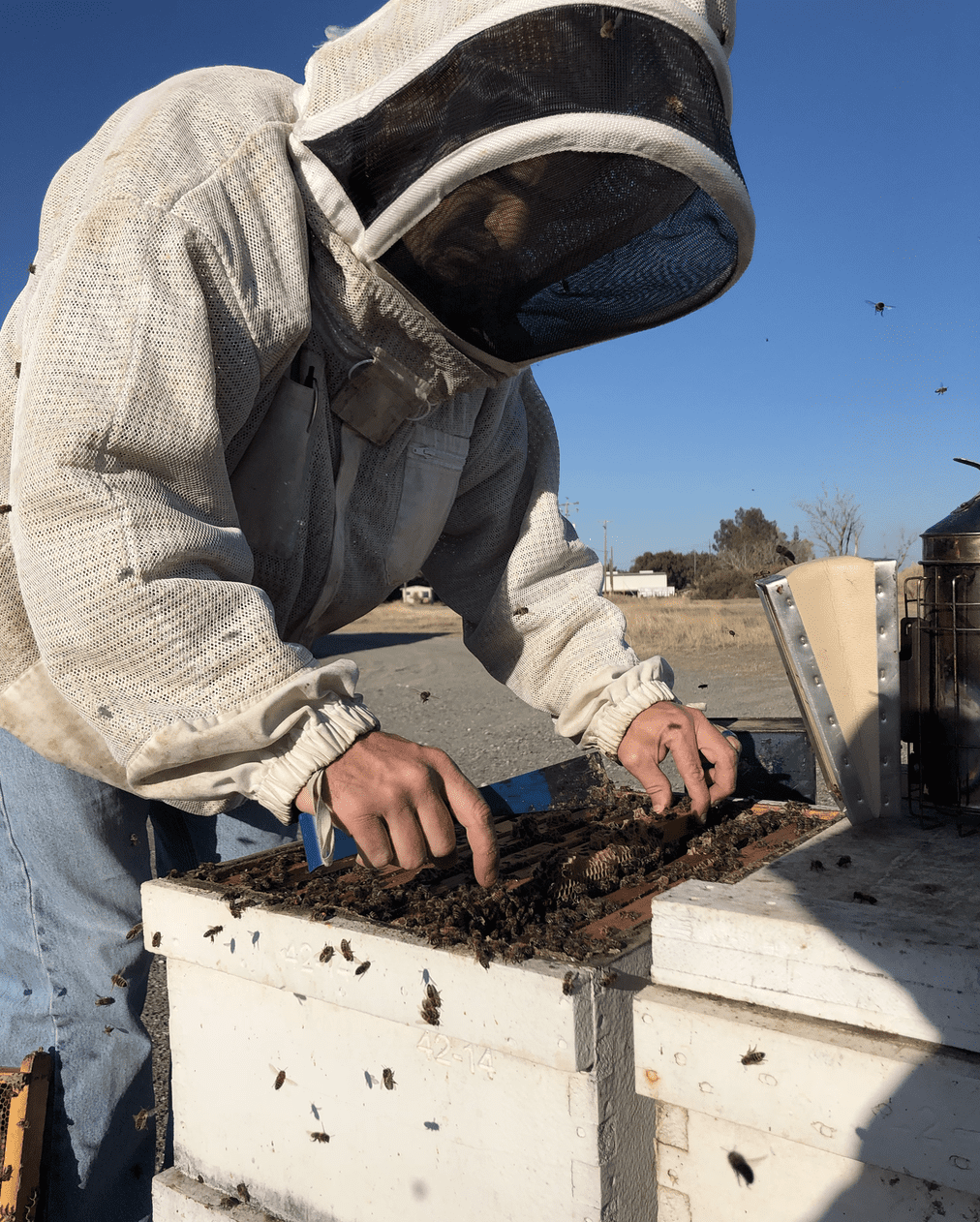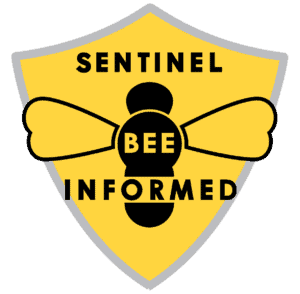Bee-come part of the Citizen Science Movement!
The goal of the Sentinel Apiary Program is to become an early warning system to alert beekeepers of potential problems due to increases in Varroa/Nosema. We hope you will join us on a citizen science journey to better colony health and cooperative colony management.
With the help of beekeepers all over the country, we have completed another successful year of the Sentinel Apiary Program! The 2022 End-of-Year Report will be available soon. View the 2021 End-of-Year Report here.
2023 Registration is now closed. Check back in January for the 2024 season!
🐝 What’s NEW in 2023? 🐝
As with last year, instead of six months of Nosema results, we’ll be providing two months of Nosema results in the early part of the season. We will continue to provide six months of Varroa results as usual. BIP Science Coordinator Nathalie Steinhauer discussed this research-based change in the 2022 Welcome Webinar, linked in the Videos portion on the right. We will also allow participants to order additional services separately—more details to come later! Contact us if you have any questions or concerns.
Recently Introduced to Sentinel:
- Sentinel Apiary Program mobile app (iOS + Android) for uploading inspection and management data
- Online dashboard for viewing and downloading data and monthly reports
- Monthly webinars exclusively for participants
- Training videos
Check out our live Sentinel Map »
What to Expect After Registering:
- Prior to May: You will receive your sampling kit.
- Early May: Join us for an instructional webinar on how to prepare for the season and use the Sentinel app and dashboard. Additionally, you will receive an email prompting you to create a password for the BIP app so you’ll be ready to record your inspection notes when sampling starts. Once you’ve set your password, you’ll receive a second email that will include protocols, sampling and inspection guides, and additional helpful info!
- May to October: The 6-month sampling period begins! Each month you’ll inspect your colonies, enter your data into the app, ship your samples to the University of Maryland Honey Bee Lab, and access your monthly report online.
- Mid-winter (typically January): Receive the annual End-of-Year Report summarizing the season’s results.
- April of the following year: Tell us which colonies survived over the winter.
Sentinel Apiary Program is full steam ahead, despite the COVID-19 pandemic. Watch the video below to see how we’re keeping up at home. Enjoy!
Inspection guides and datasheet:
- Datasheet
- Guide to Fill Out Your Datasheet
- Guide to Determine Queen Status
- Guide to Estimate the Frames of Bees
- Guide to Quantify Brood Pattern
- Guide to Recognize Major Signs of Disease
Protocols:
- App and Dashboard Protocol
- App Quickstart Guide
- Drone Sampling Protocol
- Honey Bee Sampling Protocol (any kit size)
Videos:
- App Step-by-Step Guide
- Dashboard Step-by-Step Guide
- 2022 Welcome Webinar
- Sentinel Apiary Program 2021 Recap
- How to Estimate Frames of Bees
- How to Determine Queen Status
- How to Take a Sentinel Sample
- 2021 Welcome Webinar & App Training
Past annual reports:
- 2021 Sentinel Report
- 2020 Sentinel Report
- 2019 Sentinel Report
- 2018 Sentinel Report
- 2017 Sentinel Report
- 2016 Sentinel Report
Links:
Shipping address:
BIP Lab Samples
4291 Fieldhouse Drive
4112 Plant Sciences Building #036
College Park, MD 20742
About Sentinel Apiaries:
- A colony health monitoring program for:
- 4 colonies ($300)
- 8 colonies ($500)
- 6 months of Varroa samples processed
- 2 months of Nosema samples processed
- Monthly hive health inspections conducted by you
- Monthly virtual Sentinel collectives
By empowering beekeepers with data on their colony health, beekeepers can make data-driven management decisions. In recent years, Sentinel participants had lower Varroa loads each month than the APHIS National Honey Bee Disease Survey (NHBS) average!
Participation from beekeepers like you has helped us build one of the largest continuous colony-level databases in the world!
Your Sentinel Data Contributes to Exciting Research!
- Investigation of inter-apiary Varroa transmission
- Correlation of internal physical symptoms to mortality using historical Sentinel samples
- Collaboration with NASA-DEVELOP to investigate landscape effects on Sentinel colony health using NASA-Earth satellite imagery
- And more!
Participants in the Sentinel Apiary Program are subject to BIP’s Data Policies.

Have a question about your kit, the app or the research portal? Submit a helpdesk ticket.
